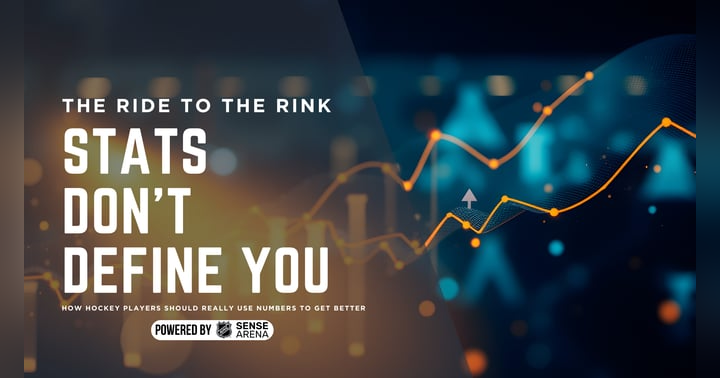What Does USA Hockey Teach Its Coaches? A Level-by-Level Guide to the Coach Education Program (CEP)

If your kid plays organized hockey, there’s a strong chance their coach has gone—or is currently going—through USA Hockey’s Coach Education Program, commonly called the CEP. But what exactly does this program cover? What do coaches actually learn at each level? And how does it all impact your child’s development?
As both a coach and a hockey parent, I’ve seen firsthand how good coaching can make or break a young player’s experience. That’s why we took a deep dive into the five levels of USA Hockey’s CEP on a recent episode of Our Kids Play Hockey. Below is a breakdown of what coaches learn, the benchmarks they’re expected to meet, and what they’re building toward at every level of the program.
What Is the USA Hockey CEP?
Before we break it down by level, here’s the big picture:
- All USA Hockey-affiliated coaches must complete CEP training
- Courses are age-specific and align with the American Development Model (ADM)
- The emphasis is on athlete-centered coaching, not just winning
- Continuing education is expected as players and coaches advance
Bottom Line:
CEP ensures that your child’s coach is creating an age-appropriate, safe, and fun environment designed for long-term athlete development, not just short-term results.
Level 1 – “Coaching 101 for New Coaches”
Best For: 8U & first-time coaches
What Coaches Learn:
- How to run a basic, fun practice using station-based drills
- How to identify when a child is frustrated or disengaged
- Parent communication, safety, and age-appropriate feedback
- Introduction to the ADM and long-term athlete development
Benchmarks:
- Run a 50-minute practice that includes skating, puck touches, and fun
- Keep kids moving, laughing, and learning
Building Toward:
- Creating structure in chaos
- Managing energy and engagement for all players
Level 2 – “Developing the Season Plan”
Best For: 10U–12U coaches or returning coaches
What Coaches Learn:
- Practice planning across a full season
- Scaffolding skills over time (progressive learning)
- Instilling habits like edge control, puck movement, and positioning
- Managing parent relationships and team energy
Benchmarks:
- Create a 4-week practice block focused on one skill (e.g. skating)
- Run drills that improve both skills and game sense
Building Toward:
- Recognizing effort over perfection
- Instilling confidence through clear repetition
Level 3 – “The Learning Curve Gets Real”
Best For: 12U–14U travel or competitive coaches
What Coaches Learn:
- Skill layering: puck control, transitions, spacing
- Intro to systems: breakouts, D-zone, forechecks
- Teaching decision-making and reading plays
- Managing special teams and in-game adjustments
Benchmarks:
- Implement age-appropriate systems
- Teach puck decisions (when to pass, when to skate)
- Confidently manage a game bench
Building Toward:
- Coaching hockey IQ, not just skill execution
- Preparing for contact hockey and faster play
Level 4 – “Coaching as a Craft”
Best For: Coaches in Tier I/II travel, academy, or prep
What Coaches Learn:
- Season planning plus long-term career development
- Defining a personal coaching philosophy
- Advanced systems: power play, PK, neutral zone traps
- Using film, meetings, and off-ice training
Benchmarks:
- Lead film reviews with players
- Define and live by team culture principles
- Execute complex systems under pressure
Building Toward:
- Becoming a transformational coach, not just tactical
- Leading athletes beyond the game
Level 5 – “Coaching at the Edge of the Game”
Best For: High-performance coaches (application required)
What Coaches Learn:
- Elite athlete mentorship and development
- “Coach-the-coach” models
- Sports psychology, analytics, and performance strategy
- Cultural awareness and diversity in team environments
Benchmarks:
- Submit a coaching thesis or major development project
- Mentor a younger coach through a full season
- Run elite-level showcases or training camps
Building Toward:
- Legacy coaching: shaping entire hockey communities
- Preparing athletes for life—on and off the ice
Final Thoughts: Why This Matters
The USA Hockey CEP is more than a box to check—it’s a framework to help coaches create meaningful, developmentally appropriate experiences for players at every age and stage. When parents and coaches are aligned in their understanding, the result is a stronger, healthier hockey culture for everyone involved.
If you're curious about what level your child’s coach has completed—or if you're considering coaching yourself—this roadmap is a great place to start. You can visit USAHockey.com also for more info on how to get involved.
And as always, we’re here to talk about it. Check out the full episode of Our Kids Play Hockey wherever you get your podcasts, and let’s keep growing the game together.
Want to learn more? Visit www.OurKidsPlayHockey.com for more episodes, blogs, and resources.


